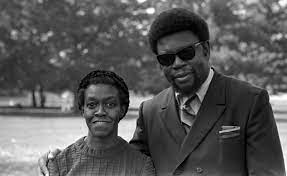February is Black History Month, and for my last post of the month, I wanted to highlight a Black psychologist who made a significant contribution to the field of psychology.
Robert Williams II (1930 – 2020)
When I was an undergraduate at the University of Toronto at Mississauga, I enrolled in a course called, “Introduction to Assessments.” The goal of the course was to introduce students to the different tests psychologists use to measure and assess a variety of constructs, such as intelligence, personality, mood, and learning disabilities, to name a few.
Because of this course, I developed an appreciation for the rigours involved in test construction. After all, when you think of it, some of the tests used in psychological assessments can significantly impact a person’s life. For example, psychological evaluations and tests can influence the kind of education a person receives, whether or not they have a learning disability, and even impact their career choice.
Dr. Robert Williams knew this all too well. As a Grade 11 student in Little Rock, Arkansas, he took an aptitude test, and the results indicated that Williams would be better off with a career in manual labour rather than entering college.
“I lost my confidence for a long time until other people convinced me that I could make it in college.”
Thank goodness Williams listened to what others told him because, as a psychologist and professor at Washington University, he opened our eyes to the cultural biases inherent in standardized testing.
The Importance of Language and Culture in Testing
Of all the tests I learned in my introductory course, I still remember Williams’ test more than others. That’s because of the test’s name: the Black Intelligence Test for Cultural Homogeneity.
Or, better known by its acronym, the BITCH test.
After a few giggles in the classroom, our instructor described the test’s rationale and purpose. And the reasoning behind the creation of the BITCH-100 is logically sound.
Williams argued that the dominant tests used to measure intelligence (the Wechsler Intelligence Scale for Children) were normed on white middle-class children. More specifically, the subtests measuring vocabulary (a strong indicator of intelligence) mostly contained words and definitions commonplace to white children who grew up in white neighbourhoods. However, black children who grew up in predominantly black communities rarely used those words in the same context as white children.
He was right.
“My prediction was that African Americans would do much better on the Black intelligence test than they would on conventional tests, and white students would do very poorly. That was supported.”
Summary
As I write this post, the bombing of Ukraine is now entering its third day. The United Nations estimates that hundreds of thousands of Ukrainians will be displaced, likely triggering a refugee crisis.
Hopefully, these refugees will end up in economically and politically stable countries with an education system that will allow their children to flourish.
But as Dr. Williams demonstrated through his research, when we are trying to measure the intelligence of a child, especially a child who is not a part of the dominant culture, it is inaccurate — irresponsible, even — to focus solely on their answers on tests. Instead, we need to put as much effort into making sure we are asking the right questions.
I hope this post helps you to appreciate one of the many contributions Black people have made to the field of psychology.
Richard

